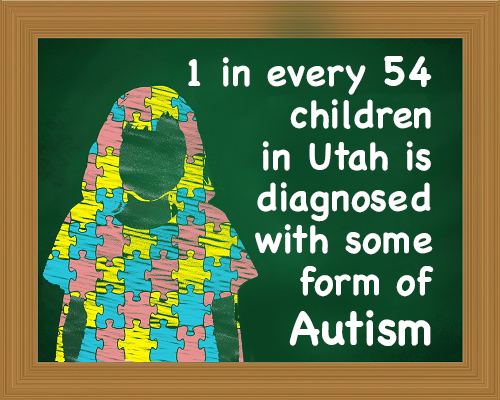Parenting a child on the autism spectrum brings a unique set of challenges and responsibilities, however, meeting these challenges can help in the bonding experience with your child. Here are some of the most effective, medically approved techniques for parenting a child with autism spectrum disorder.
Make Time for Fun
A child coping with autism spectrum disorder is still a child, and has a need to play and have fun. Young people with autism deserve the opportunity to be children, and although these children likely need additional educational, that can be all life is about - they also need scheduled fun time as well!
These times of play are essential for learning and helping a child with autism out of his or her shell. There are a number of benefits from spending unpressured time with your child. Some of the best special needs tutors have the ability to seamlessly merge fun and therapy.
Display Consistency
In general, children need structure. A child with autism needs displays of consistency more than most. They often have trouble relating educational concepts from one setting to another setting. For instance, your child may believe that he or she can only use sign language at school if that skill is learned in school.
If you have to change some of the decor in your interior design to match the educational environment more closely, this is a great investment in the future of your child. You may also consider having therapy sessions in different locations to train your child to use the skills that he or she learns everywhere.
Stick to a Schedule
Part of remaining consistent is the ability to stick to a schedule. If you are naturally absent-minded, focus your own efforts for the sake of your child. A child with autism should have a set schedule for regular meals, school, play, therapy, and bedtime. Of course there will be unexpected events that throw off scheduling in some cases. If a schedule change is unavoidable, it is usually a good idea to prepare your child for it in advance.
Reward the Good Behavior of Your Child
Instead of looking for the mistakes that your child with autism makes, make it a point to look for things that he or she does well. Look for opportunities to reward them for doing something good, or for learning a new skill.
Children with autism respond much more readily to positive reinforcement than to negative reinforcement. You must remain vigilant in these efforts, as your child will not associate your reward with their behavior unless you are very specific about the behavior that you are rewarding them for. Also, be sure to stick to a schedule even if you reward your child with playtime.
Look Nonverbal Cues for Communication
Communicating with a child on the autism spectrum can be challenging, but verbal communication is only one way to communicate; your child will also use non-verbal cues to let you know when they’re tired, hungry, or need something. As a parent, you will want to pay special attention to non-verbal cues such as body language and facial expressions as a way to know when your child may need something.
As you train yourself to look for the cues in your child's body language, develop those cues yourself. Learn to communicate through visual and tactile techniques, not just auditory techniques. As a parent, you can communicate by the tone of your voice, the way your touch feels, and by your body language. If your child throws a tantrum, they are likely trying to communicate something with you that is not getting through, and that is their way of telling you they’re frustrated about it.
Prepare Yourself for the Heightened Sensitivity of Autism
Children with autism often have increased sensitivity to sounds, smells or sensory activities; others may have lessened sensitivity. Part of learning the nonverbal communication that your child expresses with you is learning their sensitivities. As with many other kinds of communication that a child with autism undertakes, the response to a painful sensory experience will not be a direct communication. For instance, if your child has a hypersensitivity to light, this may come out as a refusal to sit down and do work. Pay attention to triggers so that you can place the cause and the effect together.
Just as your child will experience hypersensitivity and showcase bad behavior, he or she will also showcase positive reactions to certain sensory experiences. As with the tips above, look for reasons to uplift and reward your child as you take note of the sensory experiences that trigger positive responses.
Create a Home Safe Place
It is important for all children to feel safe and secure in their own home so that they can relax. You may want to give your child visual cues by using colored tape to set boundaries or by labeling things around the house in a way they can recognize. It may also be advisable to safety proof your house if you have a child on the autism spectrum that is prone to injuring themselves, throwing tantrums or having seizures.
Autism in Utah
If you’re a parent of a child with autism, you probably already know there is no single treatment that works for everyone. Regardless of the treatment plan you choose for your child, keep in mind that you can help your child get the most out of their treatment by working hand-in-hand with the therapy team involved, and then practicing therapy at home with your child. A parent’s involvement in their child’s treatment is vital to success.


